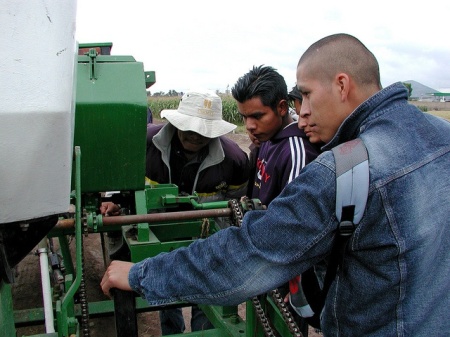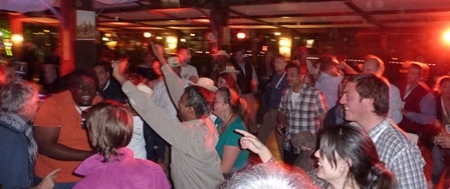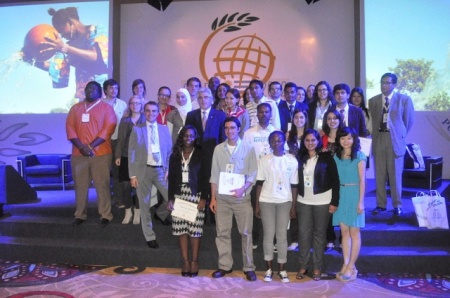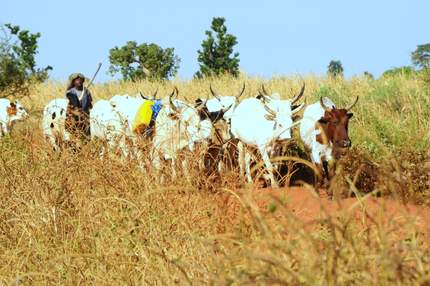I’m already surprised
Some weeks
ago, I got a chance to attend the Second Global Conference on Agricultural Research and Development at Punta del Este Uruguay as a Kenyan youth in
agriculture delegate with Young Professionals in Agricultural Research and
Development (YPARD) with the mere reason of bringing a global youth voice to
Agricultural Research for Development (AR4D).
Well in a conference attended by close to 800 people drawn from all over the world, only 36 onsite of them comprised of young people representing YPARD or being part of the social reporting team or both.
So this
leaves us with the query of are youths really participating in agricultural
research for development? If so, which are some of the avenues they can tap to
keep their dream alive?
Meet YPARD an
international movement by young professionals for young professionals whose
main agenda as per its mission is to “serve as a global platform through which
young professionals (under 40) can express their ideas and realize their full potential
towards a dynamic agricultural research for development”. Theirs is the vision of
creating sustainably improved livelihoods worldwide, through dynamic
agricultural research for development.
The movement
came in to place as an avenue of expressing the lack of interest of youths in
agriculture and related careers and their subsequent lack of representation in
dialogues concerning the same not forgetting the lack of resources for the
same.
So what do
they do?
Etched in
their global operations are four actions they undertake to achieve their vision
- Building a strong network by linking with organizations active in Agricultural Research for Development and youth issues. More so by spreading the YPARD word and getting people involved on the same
- Giving a voice to the youths by either promoting greater inclusion of youths in the strategic ARD debates or speaking on their behalf and bringing their issues of concern on the table
- Capacity building and information sharing by either providing information on funding, job opportunities and events. They also facilitate access to capacity building opportunities
- Promoting agriculture among the young people by working to address the issue of declining interest in agriculture among the young people
- Besides this, they also other services to young professionals like you which include
- Updated information on their website of available opportunities, events and featured news on agriculture
- Bimonthly funding news bulletin and monthly newsletters covering the latest happenings in agriculture
- A chance for representing other youths in your region in the ARD debates and discussions
- A podium to share your experiences in ARD and even more give an opinion on matters relating to agriculture and youth involvement
So what are
you waiting for? Get involved today
HOW
- Sign up at www.ypard.net and be part of the network
- Contribute actively to the online discussions and events
- Write a blog for them concerning your experience in the AR4D
- Stay connected with them on through social networks LinkedIn, Twitter and Facebook




